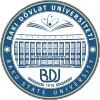At Baku State University, the goal is to enhance the experience of academic staff and researchers with innovative thinking, expand fundamental knowledge and skills, and create a scientific environment that fosters the development of students, undergraduates, and doctoral candidates to meet the demands of the labor market. This involves conducting research in priority fields, commercializing scientific results, and contributing to the socio-economic development of the country. BSU aims to reformat existing scientific research institutes, centers, and laboratories to meet modern requirements, establish innovative and industry-oriented research centers and laboratories, and develop extracurricular scientific and technical activities for students. The university’s efforts focus on creating incubation-acceleration centers to bring scientific ideas to life and enhance international collaboration and knowledge exchange through various programs such as dual degree programs, faculty-student exchanges, and more.
To achieve these goals, BSU:
- Increases the number of innovative academic staff and creates an educational-research environment conducive to the training of competitive professionals.
- Develops a research and entrepreneurial ecosystem.
- Internationalizes education and research.
- Enhances effective corporate governance, resources, and infrastructure.
Scientific research is an essential component of the activities of BSU’s scientific research institutes, centers, laboratories, departments, faculty members, researchers, doctoral and graduate students, and undergraduates. Scientific research activities at BSU are guided by regulatory documents that define their forms, scope, and directions.
Currently, BSU’s academic staff conducts scientific research aligned with the themes of their projects, and these activities are carried out through the following organizational forms:
- Individual work with scientific data.
- Participation in grant and program competitions.
- Collaboration with industrial enterprises on research projects.
- Supervision of doctoral and graduate dissertations and final projects.
- Participation in dissertation councils.
- Preparation and publication of scientific papers.
- Participation in scientific conferences, seminars, competitions, and exhibitions.
BSU's primary tasks in scientific research include:
- Promoting the creative activities of scientists, academic staff, and students.
- Conducting fundamental research in priority areas to form scientific schools and leading scientific-pedagogical teams and to develop new technologies.
- Training qualified specialists and highly skilled scientific-pedagogical personnel based on the latest scientific and technical achievements.
- Strengthening the theoretical and methodological foundations of higher education development and enhancing the impact of science on educational and teaching problems.
- Efficiently utilizing the scientific-technical potential of higher education to address priority issues related to social-economic changes.
- Developing new and progressive forms of scientific-technical collaboration between scientific, project, research organizations, and industries.
- Supporting innovation through the development of new or improved products, technological processes, services, or solutions.
- Improving the management of intellectual property and its commercialization.
- Expanding international scientific-technical cooperation with leading foreign universities, research institutions, and companies.
- Attracting additional financial resources to the scientific sector of BSU.
- Stimulating the work of academic staff and young researchers to improve scientific performance.
- Creating and regularly updating a modern electronic database of scientific achievements of BSU staff.
The annual results of scientific research at BSU are reflected in the following areas:
- Updating research topics and aligning them with priority scientific areas.
- Engaging students in scientific research activities.
- Implementing research projects funded by grants or contracts.
- Patent applications for new scientific results and identifying their application areas.
- Publishing scientific journals, articles, and monographs by academic staff and students.
- Organizing scientific events and encouraging participation in conferences, seminars, roundtable discussions, etc.
- Integrating research results into teaching, management, production, and the formation and development of research and entrepreneurial ecosystems.
- Expanding scientific collaborations with leading national and international higher education institutions, research institutes, and centers.

